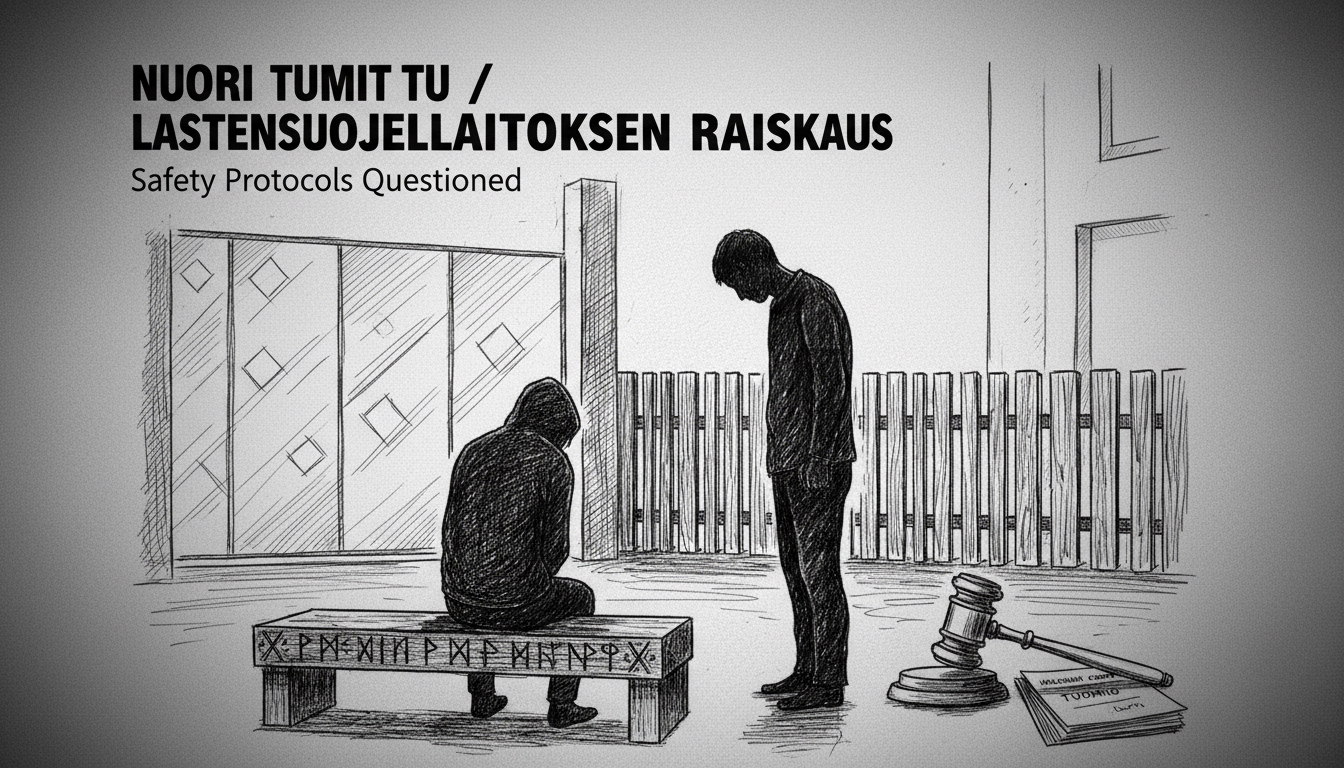A 15-year-old boy received a suspended prison sentence for raping another teenager at a child protection facility in Helsinki. The assault occurred during the third quarter of this year when the boy entered the victim's room late at night.
The Helsinki District Court found the boy guilty of child rape despite his claims that the sexual contact was consensual. Court documents reveal the boy initially pressured the victim verbally, referencing his own bad day as justification for sexual compliance. When the victim refused, the boy forced them into a lying position and committed the rape.
One caregiver was present in the facility at the time of the assault, but the crime went unnoticed until the victim reported it weeks later. The court considered text messages between the boy and victim as crucial evidence, showing repeated sexual requests and offers of clothing items in exchange for sex.
Finland's child protection system faces ongoing scrutiny regarding facility safety protocols. This case highlights vulnerabilities within residential care environments where traumatized youth live together. The sentence reflects Finland's approach to juvenile crime, balancing punishment with rehabilitation for young offenders.
The court imposed a one-year, ten-month suspended prison term and ordered 7,000 euros in compensation to the victim. Legal experts note that suspended sentences are common for first-time juvenile offenders in Nordic countries, focusing on rehabilitation rather than incarceration. The ruling is not yet legally binding and remains subject to appeal.
Child protection facilities in Helsinki have implemented increased staff training and monitoring procedures in recent years. Yet this incident raises questions about nighttime supervision and intervention protocols. The case represents another challenge for Finland's social services system, which has faced criticism over resource constraints and staff shortages.
International readers should understand that Nordic child protection systems differ substantially from other models. Finland emphasizes family-like environments in residential care, but this approach sometimes conflicts with security needs. The country continues to balance therapeutic ideals with practical safety measures in youth facilities.
The sentence demonstrates how Nordic courts handle severe crimes committed by minors. The focus remains on educational measures and psychological support while acknowledging the severity of violent offenses. This case will likely influence policy discussions about improving safety in child protection institutions across the region.

